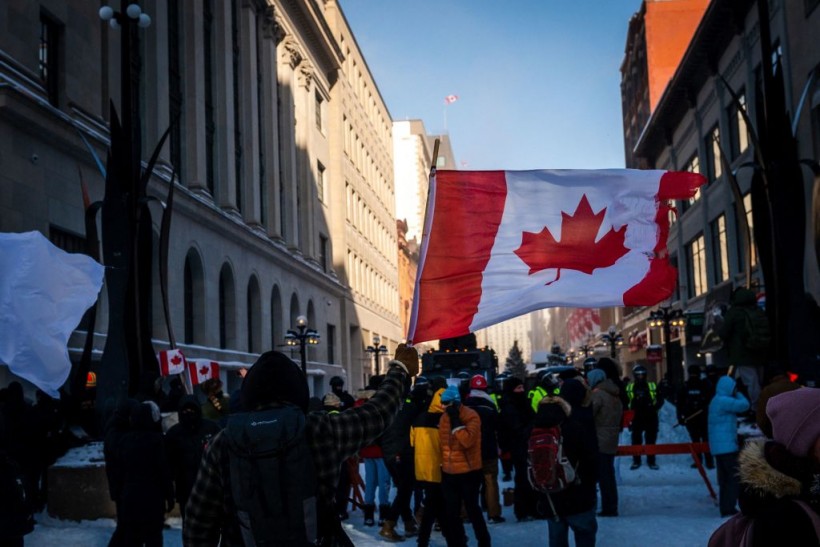A Canadian judge ruled that Ottawa's use of emergency powers during truckers' convoy protests was "unjustified."
The demonstrations were held in 2022 and were in protest of the local government's COVID-19 restrictions. At the time, thousands of protesters clogged the streets of the capital of Ottawa and besieged Parliament Hill.
Canada's Emergencies Act
A Canadian judge ruled that Ottawa's invocation of the Emergencies Act in 2022 to quell the convoy protests was "unjustified" as there was no national emergency or threat.
They stood against the country's vaccine mandates for truckers and other precautions while also slamming Prime Minister Justin Trudeau's Liberal government. The Emergencies Act allowed officials to declare certain areas as no-go zones.
It also gave law enforcement personnel the authority to freeze truckers' personal and corporate bank accounts as well as compel tow truck companies to haul away vehicles that joined the demonstrations.
Members of the self-styled Freedom Convoy also blockaded U.S.-Canada border crossings in protest of the COVID-19 restrictions and other protocols. Law enforcement personnel arrested 11 people at the blockaded crossing at Coutts, Alberta, opposite Montana, after they discovered a cache of guns and ammunition, as per the Washington Post.
On Tuesday, Federal Court Justice Richard Mosley released his decision where he said that the invocation of the Emergencies Act led to the infringement of constitutional rights. He added that there was no national emergency that justified the use of the provision, which made the decision to do so "unreasonable."
On the other hand, Deputy Prime Minister Chrystia Freeland said that the government plans to appeal the judge's decision. She argued that it was a difficult decision to invoke the Emergencies Act but she also called the protests a serious threat to the safety of the public, national security, and the country's economy.
Freeland said that she did not want to minimize the gravity of the actions that lawmakers took at the time. She noted that she also did not want to minimize the gravity of the threats that Canada faced.
Read Also: Canada's Housing, Healthcare Costs Prompts Authorities To Cap Foreign Student Permits
Unjustified Decision To Invoke Emergency Powers
The case against the government's invocation of the Emergencies Act was brought by both the Canadian Constitution Foundation and the Canadian Civil Liberties Association (CCLA), according to CTV News.
Last year, a public inquiry was led by Commissioner Paul Rouleau that heard from more than 70 witnesses over the course of six weeks on top of the submission of more than 7,000 documents. It found that then-Prime Minister Trudeau met the threshold to invoke the Emergencies Act.
In a social media post, Conservative Leader Pierre Poilievre also weighed in on the decision, saying that the prime minister broke the highest law in the land with the invocation of the act.
A lawyer for the CCLA, Ewa Krajewska, acknowledged before the federal court's decision that for many, the protests in 2022 and the government's decisions to break them up were a "distant memory."
The latest court decision on the matter is meant to give clarity to when future governments could choose to invoke the act. However, many of Trudeau's political rivals quickly took the opportunity to slam the administration.
This comes as the Conservatives are currently polling far ahead of Trudeau's Liberal party ahead of an expected election next year, said The Guardian.
Related Article: Antony Blinken Visits Africa, Pledges $45 Million To Support Regional Security








